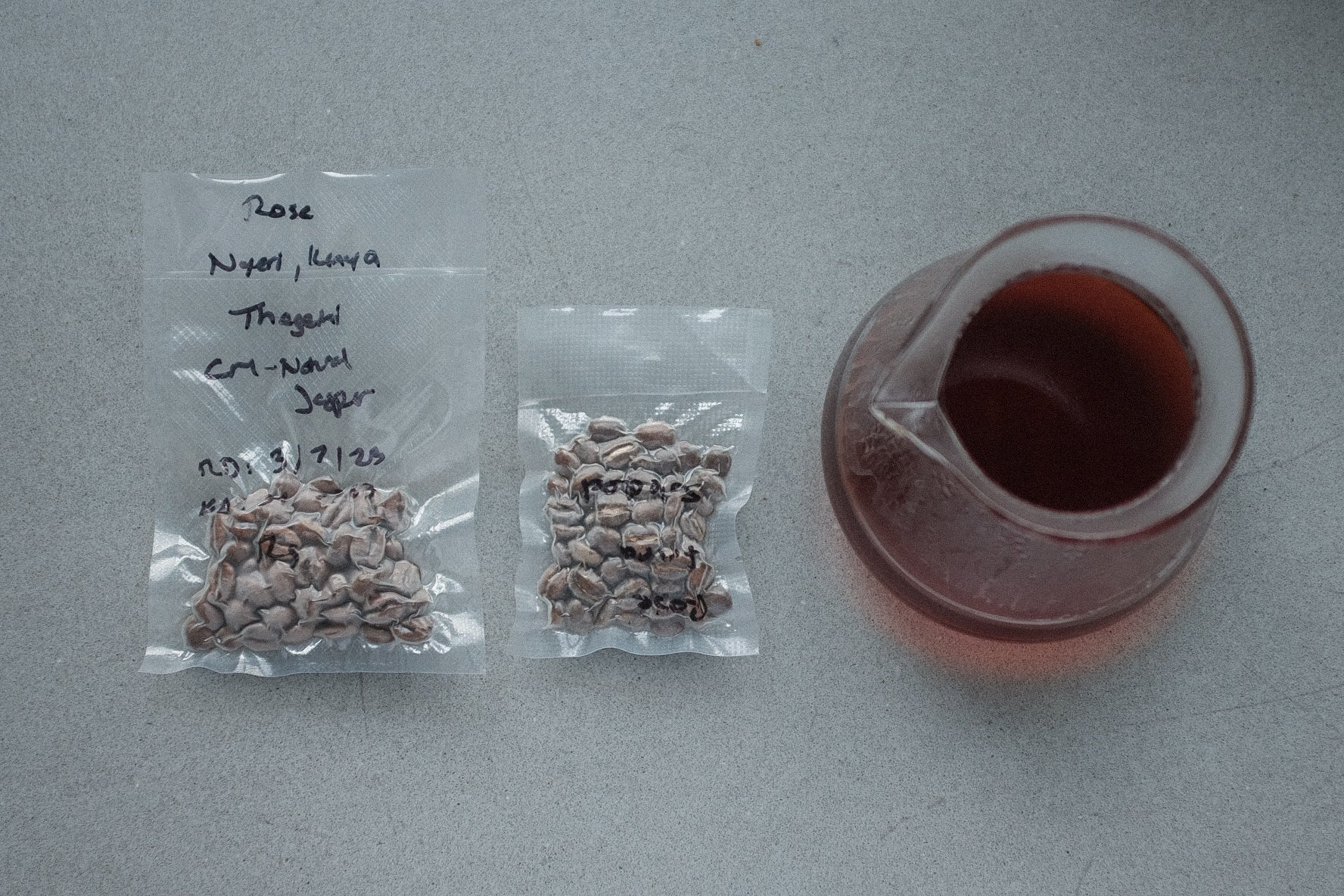
A Brief Word On Freezing Coffee.
by Samuel Bell
·
Freezing coffee. Really?
Believe it or not, the practice is more common amongst coffee nerds than you might think.
Before we can talk about it though, we need to briefly touch on another subject first:
Fresh is not best.
With pretty much anything related to food, we're culturally bought into the idea that 'fresh is always best.' In 99% of cases, I wouldn't argue with this at all. There's few things worse than stale cereal, for example.
When it comes to coffee, the reality isn't quite as simple. During roasting, coffee beans take on heaps of C02, which is a volatile compound that offers you nothing positive when it comes to brewing. It gets emitted naturally from the beans pretty much immediately after roasting (we call this degassing), hence why you'll see roasters advocating for a period of resting before you enjoy their roasted coffees.
This is where coffee can feel somewhat complex and enigmatic. We're saying that coffees straight out of the roaster are 'too fresh' and largely unenjoyable, but also that over time the same coffee will go old and stale, and largely unenjoyable.
To make matters even worse? No two coffees age and stale at the same rate.
Frustrating, right?
Now, back to freezing.
When we bring any new coffees onto the bar, we're chasing the best expression of that coffee's profile from the day we get it.
Every week, we'll cup and taste the coffee, analysing to the best of our ability how it is changing over time. If these changes are positive, then we continue to let the coffee age until we feel like the coffee's development is plateauing.
It can be tricky to manage, but we see it as part of the joy of what we do.
Once we feel a coffee has reached its 'peak potential', we'll vacuum-seal individual portions of it, allowing us to preserve volatile aromatic compounds and indefinitely extend the coffee's shelf life by effectively pausing the ageing process.
This is cool for a number of reasons. Let's say you buy a really expensive coffee for home use, but you don't drink it every day. By freezing portions of it, you could enjoy it whenever you want without worrying about the coffee getting old and stale. You could, in theory, have multiple coffees at home simultaneously without having to worry about wasting them.
For us, working consistently with multiple coffees at any one time behind bar, this is crucial to maintaining a sustainable and low-wastage approach to working with coffee. It also allows us to be much more cost-effective in our buying.
Our Reserve Menu.
Launching the reserve collection was something I & my team were incredibly excited to do with the launch of Cultura. We're selecting our favourite coffees throughout each season, resting them and subsequently freezing them so you can enjoy a growing collection of exciting profiles whenever you like.
Unashamedly, we want to build an extensive selection of coffees over time, providing you with easy access to rare lots that are difficult for you to get your hands on for one reason or another.
I think it's important that we demonstrate as close to the full spectrum of taste experience as we can. Heavily processed coffees are on trend at the moment, and the temptation would be to just fill our menus with these - we won't do that. The menu will, to the best of our ability, be balanced and showcase both modern and classic profiles of extreme quality.
So, there you have it. Next time you buy a bag of coffee from us? Check the roast date and make sure it's at least 2 weeks old before you jump in.
You'll be doing yourself a massive favour.
If you have any questions about freezing coffee, or any of our other practices, feel free to reach out to me via email (sam@culturacof.com) and I'd be more than happy to chat to you.
